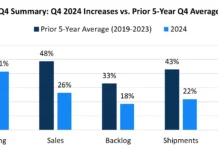by Michael J. Devereux II, Mueller Prost
On Dec. 16, 2014, in the last vote of the 113th Congress, the U.S. Senate passed H.R. 5771, the Tax Increase Prevention Act of 2014, commonly known as Extenders. The Senate passage of the Extender legislation paved the way for President Obamas signature, which he gave just three days later.
Had this legislation not been passed, thousands of plastics processors would have seen a higher tax bill for 2014. Prior to this legislation, the Credit for Increasing Research Activities (§41), aka the R&D or R&E tax credit, expired for expenditures paid or incurred after December 31, 2013. The Extender legislation extends this important incentive for research expenditures paid or incurred through December 31, 2014.
We have seen numerous changes to the R&D tax credit through 2014, including the ability to elect the Alternative Simplified Credit on amended returns in certain circumstances, new regulations with respect to research expenditures, and taxpayer-friendly case law.
If your company develops, improves, or invests in the design and development of new tooling or new part-specific manufacturing processes, the expenses associated with their development may qualify for the R&D Tax Credit.
Michael J. Devereux II, CPA, is a partner and director of manufacturing and distribution services at Mueller Prost, a CPA and Business Advisory firm. His primary focus is on tax incentives available to manufacturers. Mueller Prost’s Tax Incentives Group is nationally recognized and has assisted hundreds of companies in the manufacturing sector to identify and utilize these incentives. Mueller Prost is a member of MAPP and offers MAPP members three hours of complimentary tax and accounting advice. For more information, call 314.862.2070 or email mdevereux@muellerprost.com.




